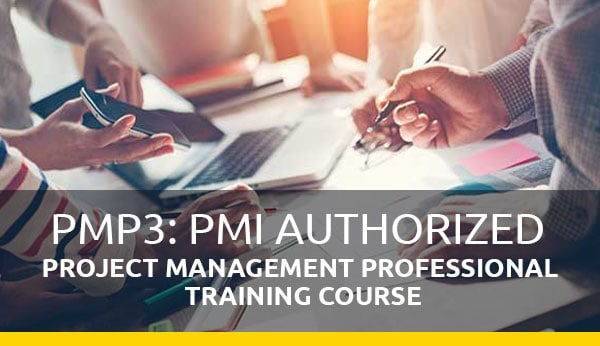
x
Course: Outline
Lesson 1: Business Environment
- Foundation Concepts
- Strategic Alignment
- Project Benefits and Value
- Organizational Culture and Change Management
- Project Governance
- Project Compliance
Lesson 2: Start the Project
- Identify and Engage Stakeholders
- Form the Team
- Build Shared Understanding
- Determine Project Approach
Lesson 3: Plan the Project
- Planning Projects
- Scope
- Schedule
- Resources
- Budget
- Risks
- Quality
- Integrate Plans
Lesson 4: Lead the Project Team
- Craft Your Leadership Skills
- Create a Collaborative Project Team Environment
- Empower the Team
- Support Team Member Performance
- Communicate and Collaborate with Stakeholders
- Training, Coaching and Mentoring
- Manage Conflict
Lesson 5: Support Project Team Performance
- Implement Ongoing Improvements
- Support Performance
- Evaluate Project Progress
- Manage Issues and Impediments
- Manage Changes
Lesson 6: Close the Project/Phase
- Project/Phase Closure
- Benefits Realization
- Knowledge Transfer
Audience
Any individual who has been responsible for the management of projects for over 36 months.
Prerequisites
Attendees should meet the experience requirements for the PMP® certification application.
What You Will Learn
Lesson 1: Business Environment
- Define “project” and how it relates to the larger discussion of “project management.”
- Discuss the different types of organizational structures and how they relate to your project’s management.
- Discuss the principles of project management.
- Discuss the principles of agile and how they relate to your project’s management.
- Discuss strategic alignment and its elements.
- Explain the impact of business factors on strategic alignment.
- Determine how projects align with business strategy.
- Identify the types of business value.
- Describe change management theory and its relation to organizational change.
- Define and discuss project governance.
- Explain project compliance and its importance
Lesson 2: Start the Project
- Define and discuss stakeholders and the most effective ways to communicate with them.
- Explain the best ways to form a team.
- Describe how to build the most effective understanding of a project and how doing so relates to executing a project successfully.
- Explain the different types of hybrid and adaptive life cycles.
Lesson 3: Plan the Project
- Explain the importance of a project management plan.
- Discuss the content of subsidiary project plans.
- Provide an overview of scope planning in both predictive projects and adaptive environments.
- Provide an overview of schedule planning in both predictive projects and adaptive environments.
- Determine the budgeting structure for a project
- Identify strategies for dealing with risks and risk planning.
- Define quality and how it relates to the outcomes and deliveries for a project.
- Discuss what resources are and how they are involved in planning for the procurement of external resources for a project.
- Discuss the importance of integrating project management plans into your change management process.
Lesson 4: Lead the Project Team
- Discuss the guidelines for developing leadership competencies and skills.
- Address leadership styles, and the components of leading a successful team, either in person or virtually.
- Describe artifacts and the strategies for their use.
- Identify the characteristics and core functions of empowered teams.
- Explain strategies and forms of communication for collaborating in a project team environment.
- Learn the value of training, coaching, and mentoring for a team.
- Explain the importance of conflict management.
- Discuss the causes and levels of conflict and their outcomes.
Lesson 5: Support Project Team Performance
- Explain the various methods for implementing improvement.
- Explain the various methods for performance measurement.
- Compare these methods with a focus on communication and accountability.
- Identify the methods for implementing a project and the issues and impediments that arise during a project.
- Describe the methods for implementing changes during a project.
Lesson 6: Close the Project/Phase
- Define the reasons and activities related to the closure of a phase or a project.
- Explain the benefits gained from a project or phase, and how they are managed, sustained, etc.
- Examine the reasons for knowledge transfers and how they relate to the closure of a phase or project.
 Print Page
Print Page